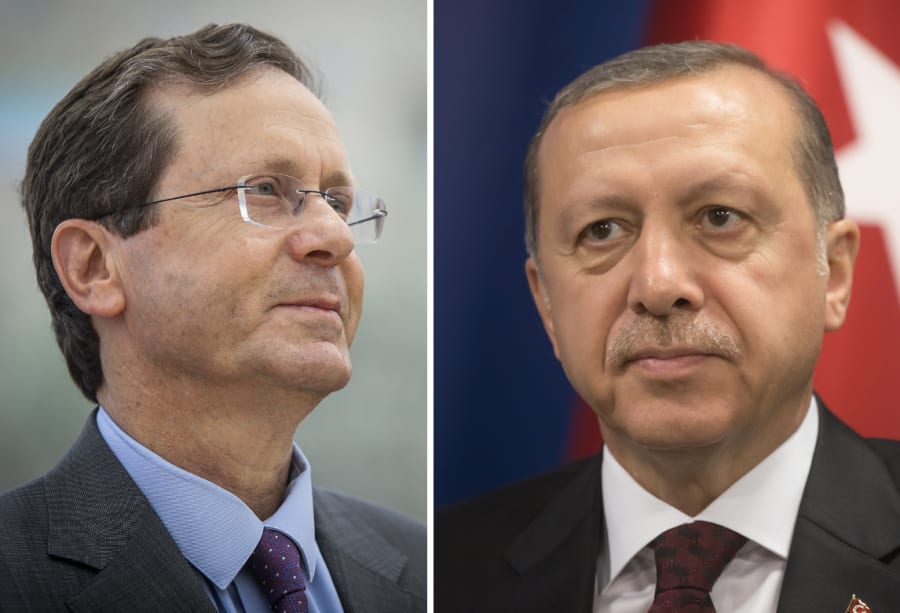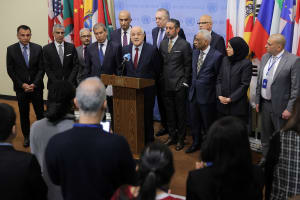Turkey’s president calls to congratulate his Israeli counterpart – why and what do we need to know?
Relations have been tense, to say the least, between Israel and Turkey over the last three years – but latest signals from Erdogan vacillate between good and bad

Turkish President Recep Tayyip Erdogan made a rare call to an Israeli official, calling President Isaac Herzog on Monday to congratulate him on being sworn in as president last week, according to the Israeli President’s Office.
“The presidents emphasized in their call that the ties between Israel and Turkey are of great importance to the security and the stability of the Middle East and there is great potential for cooperation between the countries in many fields, in particular the areas of energy, tourism and technology,” according to an Israeli readout of the call.
With this call, Turkey is continuing to send mixed signals to Jerusalem. On one hand, a call like this bolsters the impression that Turkey is willing to reopen dialogue with Israel with whom relations have been extremely tense for about a decade.
On the other hand – as recently as May – Turkey condemned Israel for incidents surrounding violence between Israelis and Arabs at the Temple Mount and the military conflict between Israel and Gaza which took place over the span of 11 days. Erdogan accused Israel of “terrorism” and called Israelis “murderers, to the point that they kill children who are five or six years old. They only are satisfied by sucking their blood.”
Even the U.S. State Department commented, calling the remarks anti-Semitic.
But back in December, Erdogan made overtures to the Jewish state ending a two-year standoff with Israel by appointing a new ambassador to the Jewish state and also saying directly that the two countries can improve ties. The appointed ambassador has not arrived in Israel, however, and in any case, in March, Turkey pressured Kosovo not to establish its embassy in Jerusalem – which it eventually did months later. Despite having its own peace treaty with Israel, Turkey continued to put pressure on Kosovo and criticized both the United Arab Emirates and Bahrain for all making peace deals with the Jewish state.
Nevertheless, during the call on Monday, Erdogan and Herzog both stressed “the great importance of maintaining contact and ongoing dialogue despite the differences of opinion, with the goal of making positive steps toward a solution to the Israeli-Palestinian conflict, which will also contribute to the improvement of Israeli-Turkish relations.”
However, according to the Turkish readout of the call, Erdogan added that he wants the Israeli-Palestinian conflict to be “settled through a two-state, lasting and comprehensive solution within the framework of UN resolutions.”
Turkey recalled its ambassador to Israel and expelled the Israeli envoy to Ankara in 2018 after a short two-year stint of having an ambassadorial exchange following an incident in 2010 in which Israeli forces boarded a Turkish vessel on its way to Gaza and killed nine Turkish activists.
Just this past weekend, Erdogan hosted Palestinian Authority President Mahmoud Abbas in Istanbul where the Turkish president reiterated his support of the Palestinians. He said Turkey will not remain silent against “the Israeli oppression of Palestinians.”
All of these divergent comments are sending mixed signals to Jerusalem. Nevertheless, Israel continues to consider Turkey a strategic regional ally.

Nicole Jansezian was the news editor and senior correspondent for ALL ISRAEL NEWS.













